第20章 CHAPTER III THE HOLDING OF THE BUSINESS(6)
Storrow, on the contrary, was a small man, quiet in manner, conversational in argument, and an encyclopedia of definite information. He was so thorough that, when he became a Bell lawyer, he first spent an entire summer at his country home in Petersham, studying the laws of physics and electricity. He was never in the slightest degree spectacular. Once only, during the eleven years of litigation, did he lose control of his temper. He was attacking the credibility of a witness whom he had put on the stand, but who had been tampered with by the opposition lawyers. "But this man is your own witness,"protested the lawyers. "Yes," shouted the usually soft-speaking Storrow; "he WAS my witness, but now he is YOUR LIAR."The efficiency of these two men was greatly increased by a third--Thomas D. Lockwood, who was chosen by Vail in 1879 to establish a Patent Department. Two years before, Lockwood had heard Bell lecture in Chickering Hall, New York, and was a "doubting Thomas." But a closer study of the telephone transformed him into an enthusiast. Having a memory like a filing system, and a knack for invention, Lockwood was well fitted to create such a depart-ment. He was a man born for the place. And he has seen the number of electrical patents grow from a few hundred in 1878 to eighty thousand in 1910.
These three men were the defenders of the Bell patents. As Vail built up the young telephone business, they held it from being torn to shreds in an orgy of speculative competition. Smith prepared the comprehensive plan of defence.
By his sagacity and experience he was enabled to mark out the general principles upon which Bell had a right to stand. Usually, he closed the case, and he was immensely effective as he would declaim, in his deep voice: "I submit, Your Honor, that the literature of the world does not afford a passage which states how the human voice can be electrically transmitted, previous to the patent of Mr. Bell." His death, like his life, was dramatic. He was on his feet in the courtroom, battling against an infringer, when, in the middle of a sentence, he fell to the floor, overcome by sickness and the responsibilities he had carried for twelve years. Storrow, in a different way, was fully as indispensable as Smith. It was he who built up the superstructure of the Bell defence. He was a master of details. His brain was keen and incisive; and some of his briefs will be studied as long as the art of telephony exists. He might fairly have been compared, in action, to a rapid-firing Gatling gun;while Smith was a hundred-ton cannon, and Lockwood was the maker of the ammunition.
Smith and Storrow had three main arguments that never were, and never could be, answered.
Fifty or more of the most eminent lawyers of that day tried to demolish these arguments, and failed. The first was Bell's clear, straightforward story of HOW HE DID IT, which rebuked and confounded the mob of pretenders. The second was the historical fact that the most eminent electrical scientists of Europe and America had seen Bell's telephone at the Centennial and had declared it to be NEW--"not only new but marvellous," said Tyndall. And the third was the very significant fact that no one challenged Bell's claim to be the original inventor of the telephone until his patent was seventeen months old.
The patent itself, too, was a remarkable document.
It was a Gibraltar of security to the Bell Company. For eleven years it was attacked from all sides, and never dented. It covered an entire art, yet it was sustained during its whole lifetime. Printed in full, it would make ten pages of this book; but the core of it is in the last sentence: "The method of, and apparatus for, transmitting vocal or other sounds telegraphically, by causing electrical undulations, similar in form to the vibrations of the air accompanying the said vocal or other sounds." These words expressed an idea that had never been written before. It could not be evaded or overcome.
There were only thirty-two words, but in six years these words represented an investment of a million dollars apiece.
Now that the clamor of this great patent war has died away, it is evident that Bell received no more credit and no more reward than he deserved. There was no telephone until he made one, and since he made one, no one has found out any other way. Hundreds of clever men have been trying for more than thirty years to outrival Bell, and yet every telephone in the world is still made on the plan that Bell discovered.
No inventor who preceded Bell did more, in the invention of the telephone, than to help Bell indirectly, in the same way that Fra Mauro and Toscanelli helped in the discovery of America by making the map and chart that were used by Columbus. Bell was helped by his father, who taught him the laws of acoustics; by Helmholtz, who taught him the influence of magnets upon sound vibrations; by Koenig and Leon Scott, who taught him the infinite variety of these vibrations; by Dr. Clarence J. Blake, who gave him a human ear for his experiments; and by Joseph Henry and Sir Charles Wheatstone, who encouraged him to persevere. In a still more indirect way, he was helped by Morse's invention of the telegraph; by Faraday's discovery of the phenomena of magnetic induction; by Sturgeon's first electro-magnet; and by Volta's electric battery.
All that scientists had achieved, from Galileo and Newton to Franklin and Simon Newcomb, helped Bell in a general way, by creat-ing a scientific atmosphere and habit of thought.
But in the actual making of the telephone, there was no one with Bell nor before him. He invented it first, and alone.